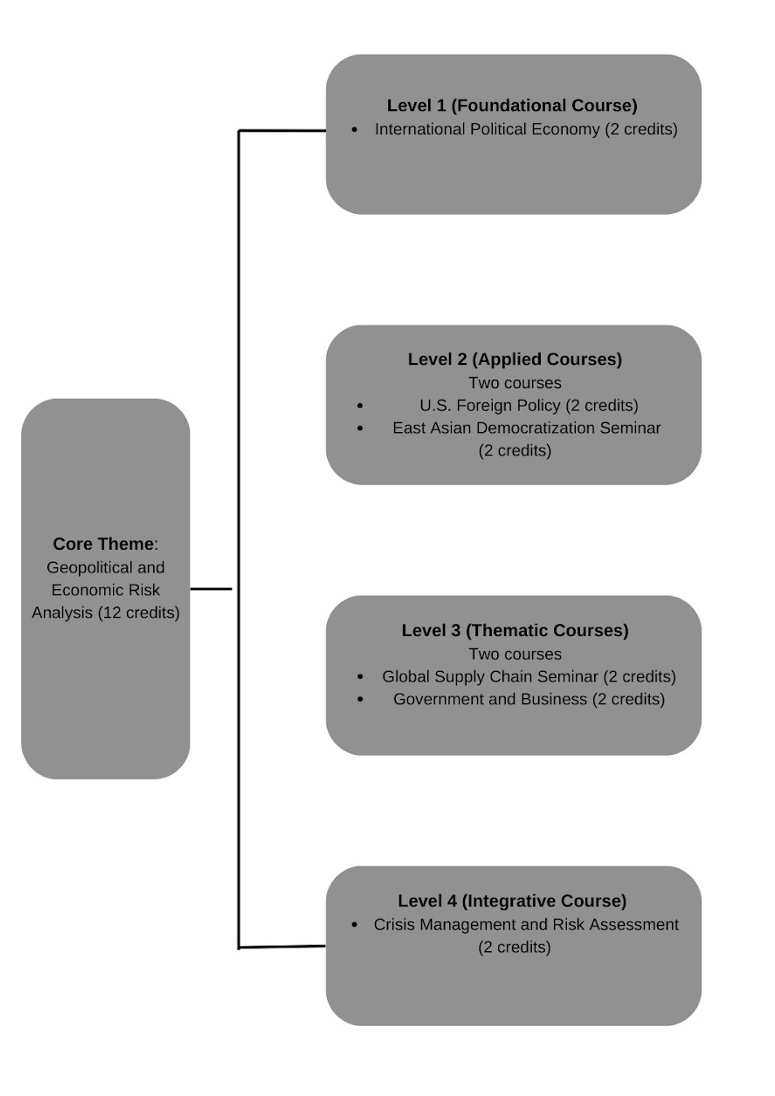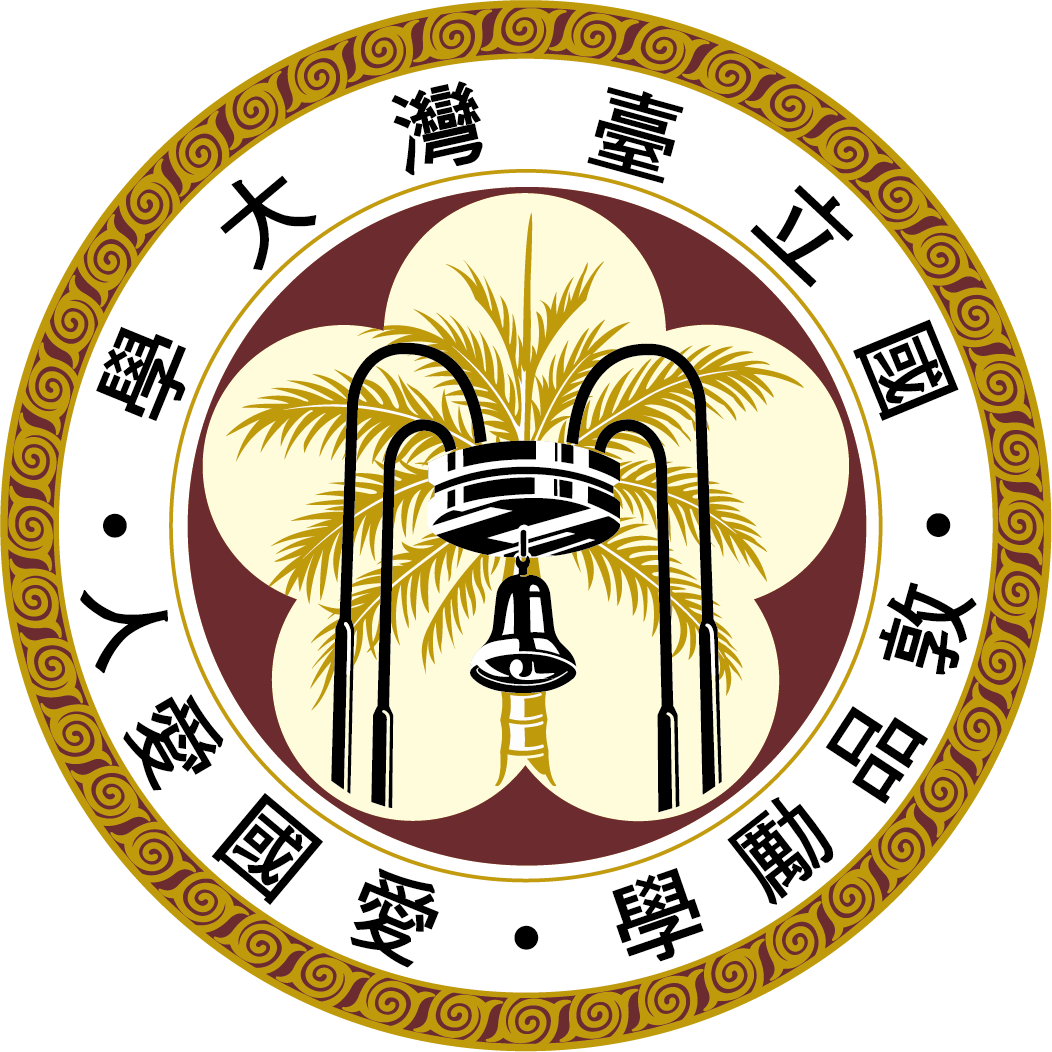Specialization Program Compass
Introduction
Specialization programs refer to course modules that are well-structured with a strong linkage among courses. Each program generally consists of four to five courses, amounting to 12 to 15 credits. An official certificate will be awarded for successful completion of a program upon graduation. Explore the 267 specialization programs offered by 67 departments at NTU.
Note:
- Individual courses may have prerequisite or eligibility requirements. Please check with Online Course Information (https://nol.ntu.edu.tw/nol/guest/index.php) prior to course registration.
- Certification will be subject to the specializations in effect in the semester of graduation.
| Title | Geopolitical Risk Analysis | ||||||||||||||||||||||||||||||||
|---|---|---|---|---|---|---|---|---|---|---|---|---|---|---|---|---|---|---|---|---|---|---|---|---|---|---|---|---|---|---|---|---|---|
| Main Instructor | Name: Huang Min-Hua Email : mhhuang5103@ntu.edu.tw |
||||||||||||||||||||||||||||||||
| Contact Person | Name: Kuan Ling-Hui Email:kuanlh1124@ntu.edu.tw |
||||||||||||||||||||||||||||||||
| Goals and Expected Learning Outcomes | Learning Objectives: Geopolitical and Economic Risk Analysis is an emerging and popular applied field in political science and international relations. It is also a crucial issue for Taiwan’s national survival, development, and competition in the future. The specialized field in Geopolitical and Economic Risk Analysis is designed through four levels of courses: foundational, applied, thematic, and integrative. It trains students to understand the complex and ever-changing international geopolitical and economic situations that Taiwan faces and fosters their ability to analyze overall national interests and make decisions in challenging circumstances, cultivating Taiwan’s future high-level leaders.This specialization begins with a basic framework for understanding the international political and economic landscape, providing foundational knowledge in global geopolitics and economics. It applies this knowledge to the analysis of U.S. foreign policy and the East Asian political-economic situation. The program further delves into case studies from the industry on global supply chains and government-business interactions, helping students understand the domestic and international factors driving geopolitical and economic changes and risks. Finally, the program offers courses on crisis management and risk assessment in the context of industrial transformation and global competition amidst dramatic geopolitical shifts, equipping students with the ability to manage crises and assess risks.
|
||||||||||||||||||||||||||||||||
| Program Structure |  |
||||||||||||||||||||||||||||||||
| Course-taking Guidelines | Level 1 “Foundational Course”: One required course: International Political Economy. This course introduces the basic theories and frameworks of international political economy, providing a solid understanding of the modern international political and economic system and its operational models. Level 2 “Applied Courses”: Two required courses: U.S. Foreign Policy and East Asian Democratization Seminar. Level 3 “Thematic Courses”: Two required courses: Global Supply Chain Seminar and Government and Business. Level 4 “Integrative Course”: One required course: Crisis Management and Risk Analysis. |
||||||||||||||||||||||||||||||||
| Courses of the Program |
|
||||||||||||||||||||||||||||||||
| Remarks | For university-wide questions regarding the specialization, such as how it will be reflected in graduation documents, please contact the Teaching and Learning Development Center at the Office of Academic Affairs, at 3366-3367. Ms. Song Daiwei is the contact person.
For questions related to course enrollment in this specialization, please send an email with the original to the lead instructor, Professor Huang Minhwa (mhhuang5103@ntu.edu.tw), and copy the contact person (kuanlh1124@ntu.edu.tw) for a response. All courses in this specialization are taught in English. |
||||||||||||||||||||||||||||||||




